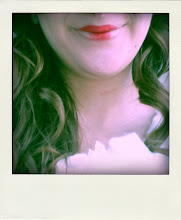Rabbit Hole by David Lindsay-Abaire
>> 19 May, 2010
Another play that I decided to revisit after Acting 1 was Rabbit Hole. I felt that this play really lent itself to the world of acting classes, since there are so many good scenes and monologues in it.
Rabbit Hole is about Howie and Becca, a couple who lost their only son in a car accident. The two are trying to piece their lives together; Howie with his trying to stay in the past, and Becca trying to erase the past itself. The two are tragically lost in their lives, and their suffering relationship only hinders their attempts to regain control of their wold. The partial control they have is then thrown to the wind when Jason, the boy who hit their son, wants to contact them and talk to them.
I really find the character dynamics in this show to be really great. Each character is very well thought-out and planned, and they all lend themselves to the plot. The dialogue between them is also very realistic and interesting, and I would really like to see this show on the stage or see the film version of it, which is to be released later this year. (Starring Nicole Kidman as Becca and Aaron Eckhart as Howie.)
Since this show is female-heavy, I find that I could do pretty much any scene from the show, especially ones with Becca or Izzy (Becca's sister) in them.
Monologues
• Pg. 34 - Becca tells Howie how she's not trying to "erase" the memory of their son, Danny.
• Pg 42 - Becca tells Izzy about how she slapped a woman at the supermarket. The monologue is in pieces due to Izzy's interjections, but you could piece Becca's parts together with ease.
• Pg. 51 - Nat, Becca's mother, speaks of her pain with also having lost a child.

